Stars and STEM Stories
Asia and Pacific Regional Coordination Office Hosts GLOBE Learning Expedition in Kathmandu and Pokhara, Nepal
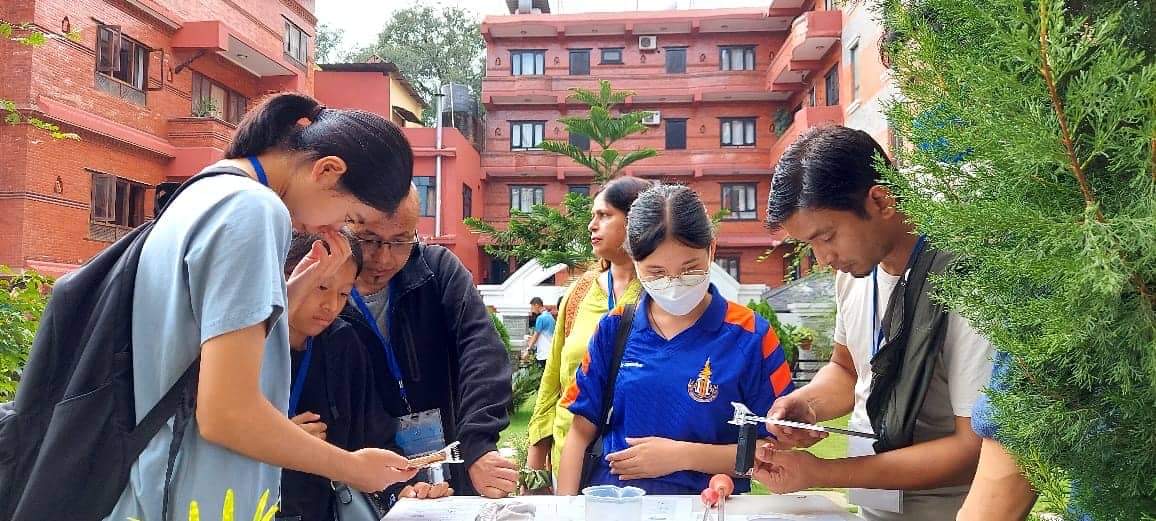
Participants learning about the GLOBE Mosquito Protocol
The GLOBE Regional Coordination Office for Asia and Pacific, in association with the Indian Environmental Society (IES), and in collaboration with the Environmental Camps for Conservation Awareness (ECCA) and the GLOBE Implementation Office (GIO), organized a seven-day GLOBE Learning Expedition (GLE) in Kathmandu and Pokhara, Nepal, from 27 September through 03 October 2022.
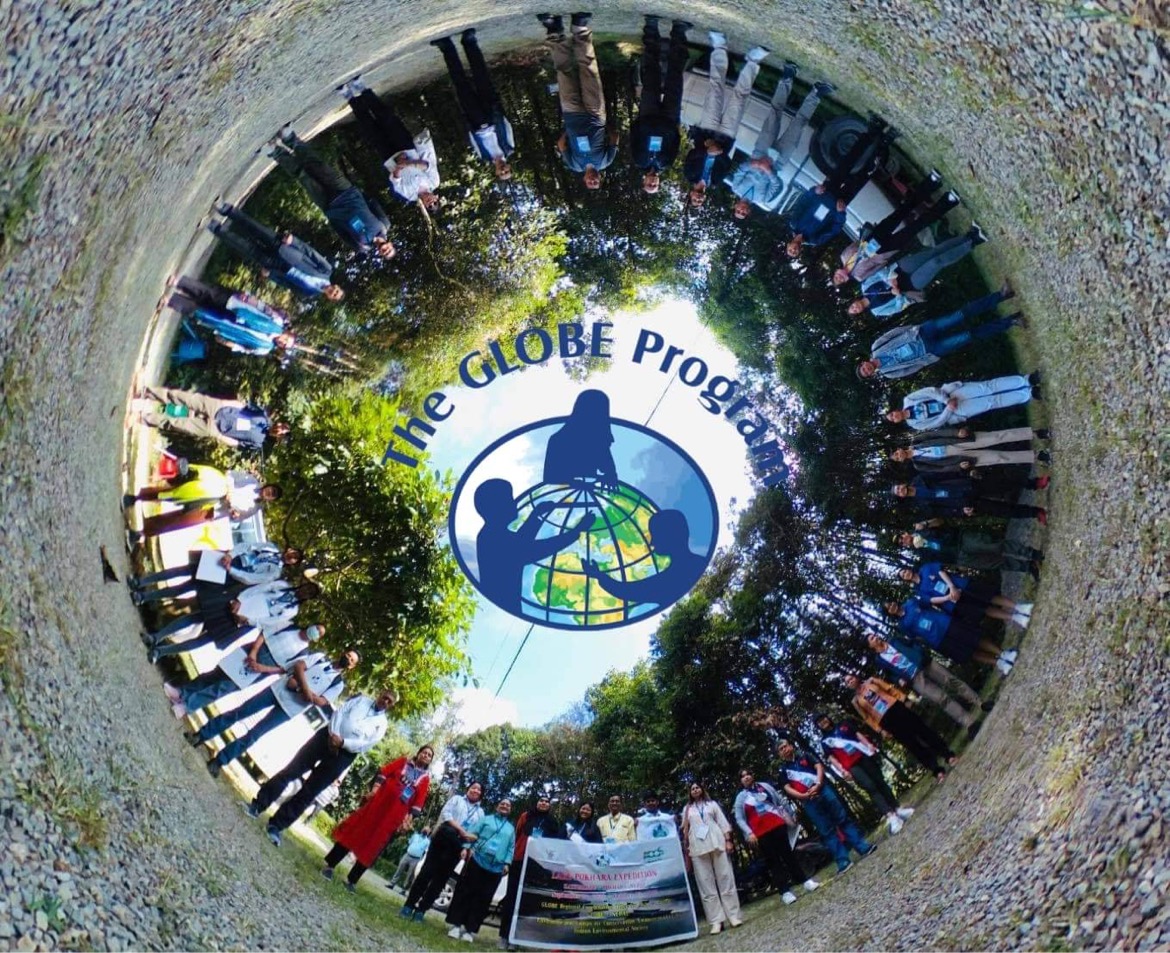
“The goal of the expedition was to create a platform for participants to engage in a hands-on learning experience centered around understanding the effects of climate change in the region through the use of relevant GLOBE protocols,” Dr, Desh Bandhu, Coordinator, Asia and Pacific RCO, said.
“The main objective of the program was to create a platform for exchanging learning and experience related to The GLOBE Program, along with a cultural knowledge exchange. The expedition welcomed 43 participants from eight countries (Bhutan, India, Nepal, Philippines, Taiwan, Thailand and the United States). Two officials from the U.S. Embassy in Nepal, Patrick Gan and Sulakchana Rai; and Sivani Rasanayakam (U.S. Embassy in Dhaka, Bangladesh) joined us during the Expedition.”
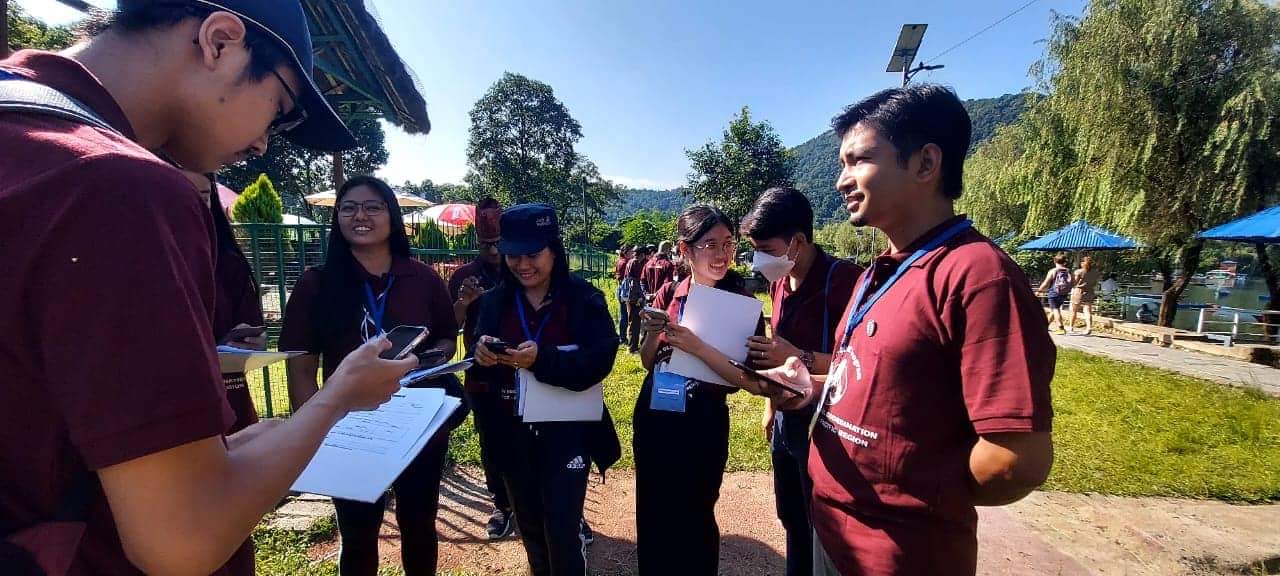
“Participants visited GLOBE school, ICIMOD Knowledge Park at Godavari, Kathmandu, and studied at Lake Fewa in Pokhara by doing GLOBE protocols on hydrosphere (water temperate, pH, TDS, and transparency), biosphere (land cover and tree height), atmosphere (air temperate, clouds, and surface temperature), and pedosphere (soil temperature and soil characterization).”
“Participants also conducted the Mosquito Protocol using The GLOBE Program’s app, GLOBE Observer. They also contributed with data entries to the GLOBE database via the app. The team of ECCA and Indian Environment Society facilitated the protocol training.”
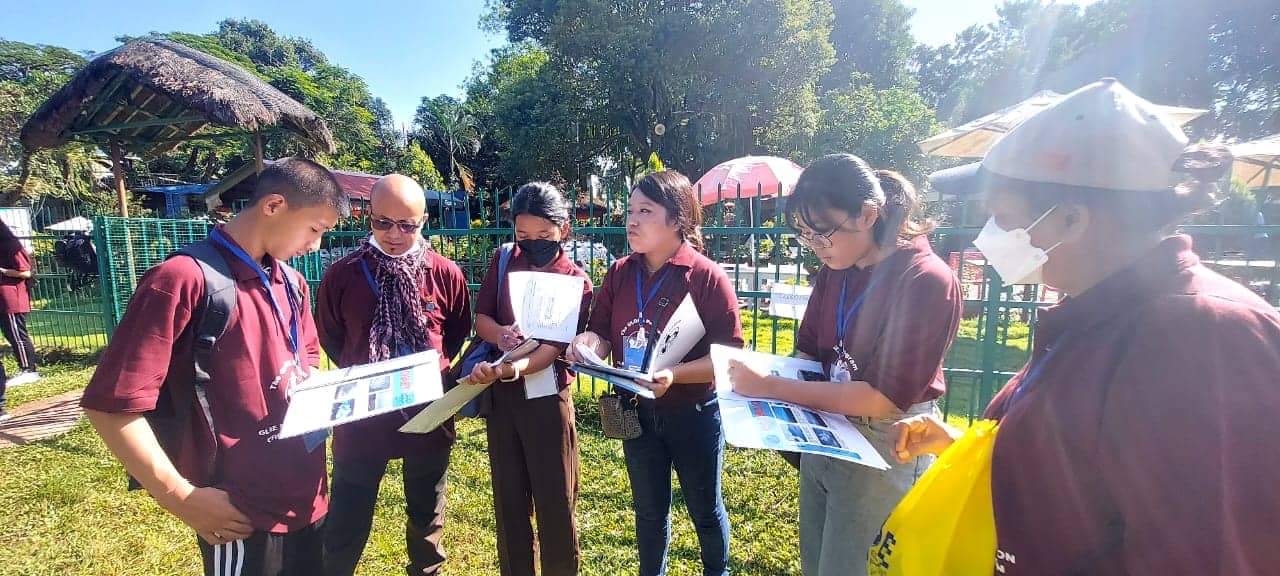
“Participants discussed the importance of these protocols and the impact on the local environment that comes from engaging in a focused study of the water. Biotic life and environmental conditions near the lake's periphery were also observed and discussed. Participants were also able to observe and learn about topographical variation and the type of vegetation in hilly areas, and to observe the impact of the landscape on lifestyles of the villagers living there. While in Pokhara, Nepal, students also visited White Gumba, where they made cloud observation using The GLOBE Program’s app, GLOBE Observer.”
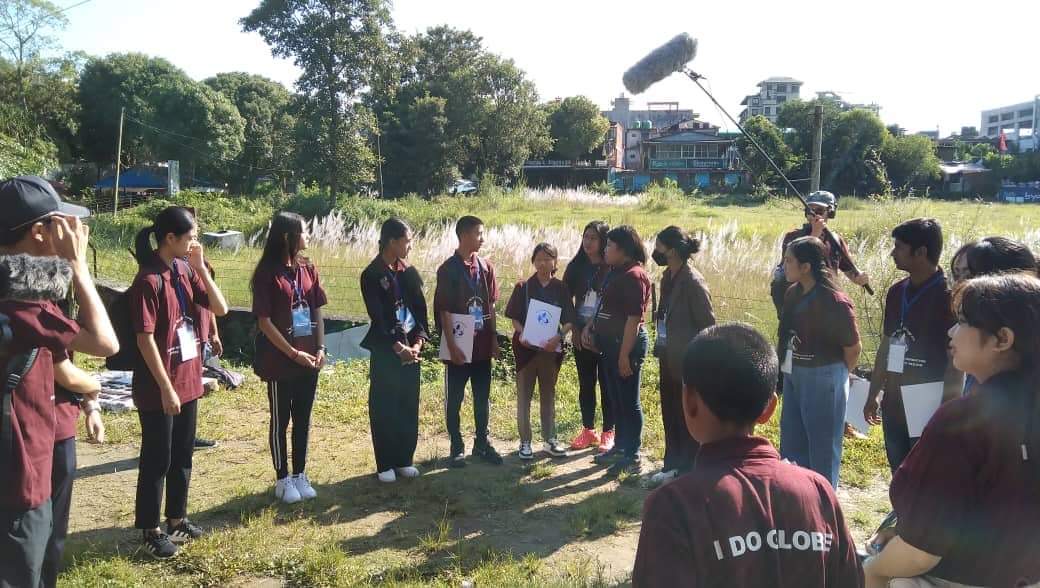
“Participants also shared their research on water bodies in their home country with other participants, which lead to a discussion on future collaboration among different students. Participants also shared their best GLOBE practices, ones they have organized to keep their local community motivated and informed about their local environment,” Dr. Bandhu said.
“All participants visited Crescent Academy (a GLOBE school), and all of the students experience the Nepali culture, a welcome speech given by nature club members, a students exchange around their views on GLOBE activities in their respective schools. In addition, the nature club students gave presentations on The GLOBE Program in their schools. The closing program was held in Pokhara, with the distrubution of certificates of participation, and time for the sharing of personal experiences.”
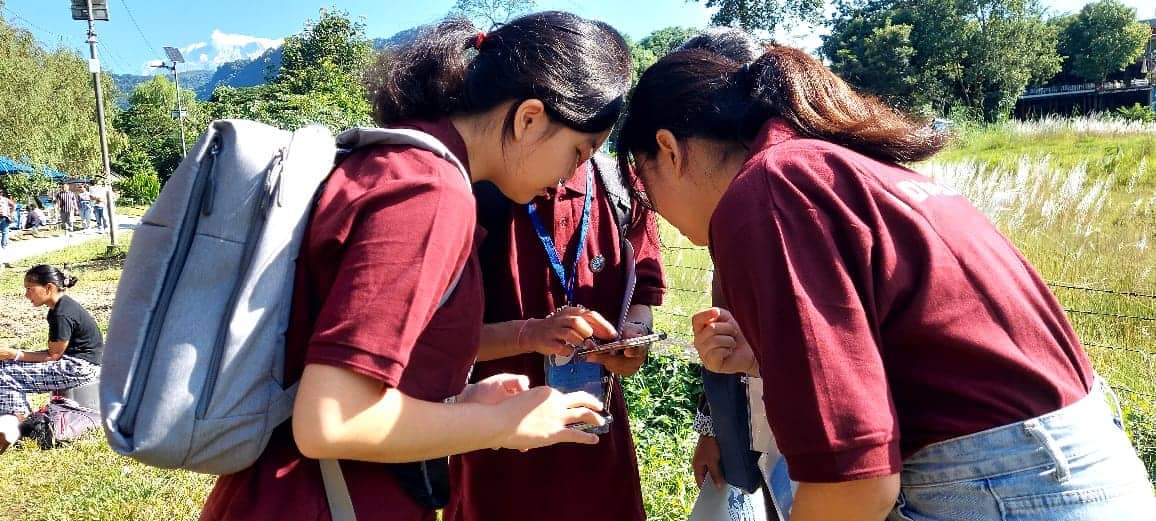
“The expedition provided an opportunity to GLOBE schools in Bhutan, India, Nepal, Philippines, Taiwan and Thailand to experience active participation and to learn more (and experience) GLOBE protocols. Thanks to this effort, the students, teachers and researchers got an opportunity to take part in the GLE, and were updated regarding recent advancements in GLOBE protocols.”
“The expedition provided a large platform for students to share their GLOBE activities and projects, the status of The GLOBE Program in their respective schools, and defining characteristics of their varying cultures. The expedition also created an opportunity for GLOBE Bhutan participants, the newest country in the region, to take part in their first face-to-face GLOBE activity.”
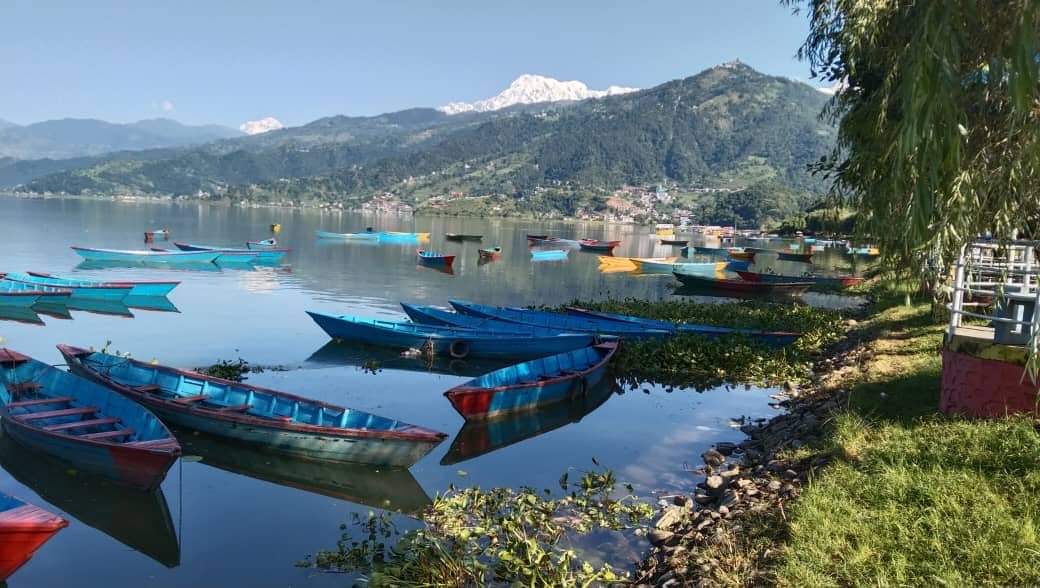
“The participants engaged in hands-on learning of various protocols, including hydrology protocols, soil protocols, and atmosphere protocols. They also got to experience the use of The GLOBE Program’s app, GLOBE Observer Mosquito Habitat Mapper tool to enter data. They also collected data for water temperature, pH, turbidity and conductivity, as well as for cloud type and cloud cover and soil temperature.”
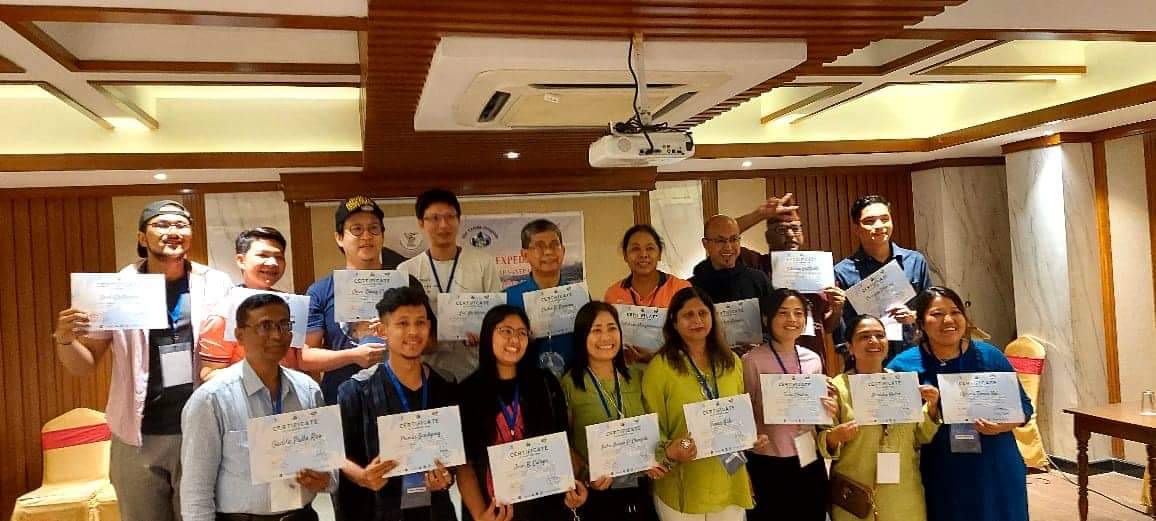
Participants marking the end of the expedition by showing their participation certificates
“Participants were able to discuss the importance of these protocols and the impact on the local environment that comes from engaging in a focused study of atmosphere and hydrology. They were also able to learn how to upload the data to the GLOBE website,” Dr. Bandhu said.
Sangay Choden, a GLOBE student from Bhutan said, “We don't do soil temperature in our school, but I have learned how to do this protocol during the expedition, and I'm going to share this with my friends back in school. I'm very happy that I was part of the Lake Pokhara Expedition. I have learned so much and met new friends from different countries. I hope we will meet again soon.”
Babie Noreen P. Clemente, a GLOBE teacher from Batasan Hills National High School, Manila, Philippines, said, “Thank you for ororganizing this meaningful event, for the learning shared, for the friendship, and for the wonderful experience here in Nepal.”
Nihanth Sai, a GLOBE student from Winfield High School, Khammam, Telangana, India, said, “I really enjoy learning different ways to observe different protocols of The GLOBE Program, and I'm also able to know the benefits of GLOBE protocols towards environment and our general life, as well. I also learned how to observe Mosquito Habitat Mapper. It was new for me, but now I'm now clear about this protocol.”
Cheng-Chang Chen (Neil), a GLOBE teacher from New Taipei Municipal Hsin Tien Senior High School, New Taipei City, Taiwan, said, “Wonderful experience in Nepal doing GLOBE. I will remember this forever!”
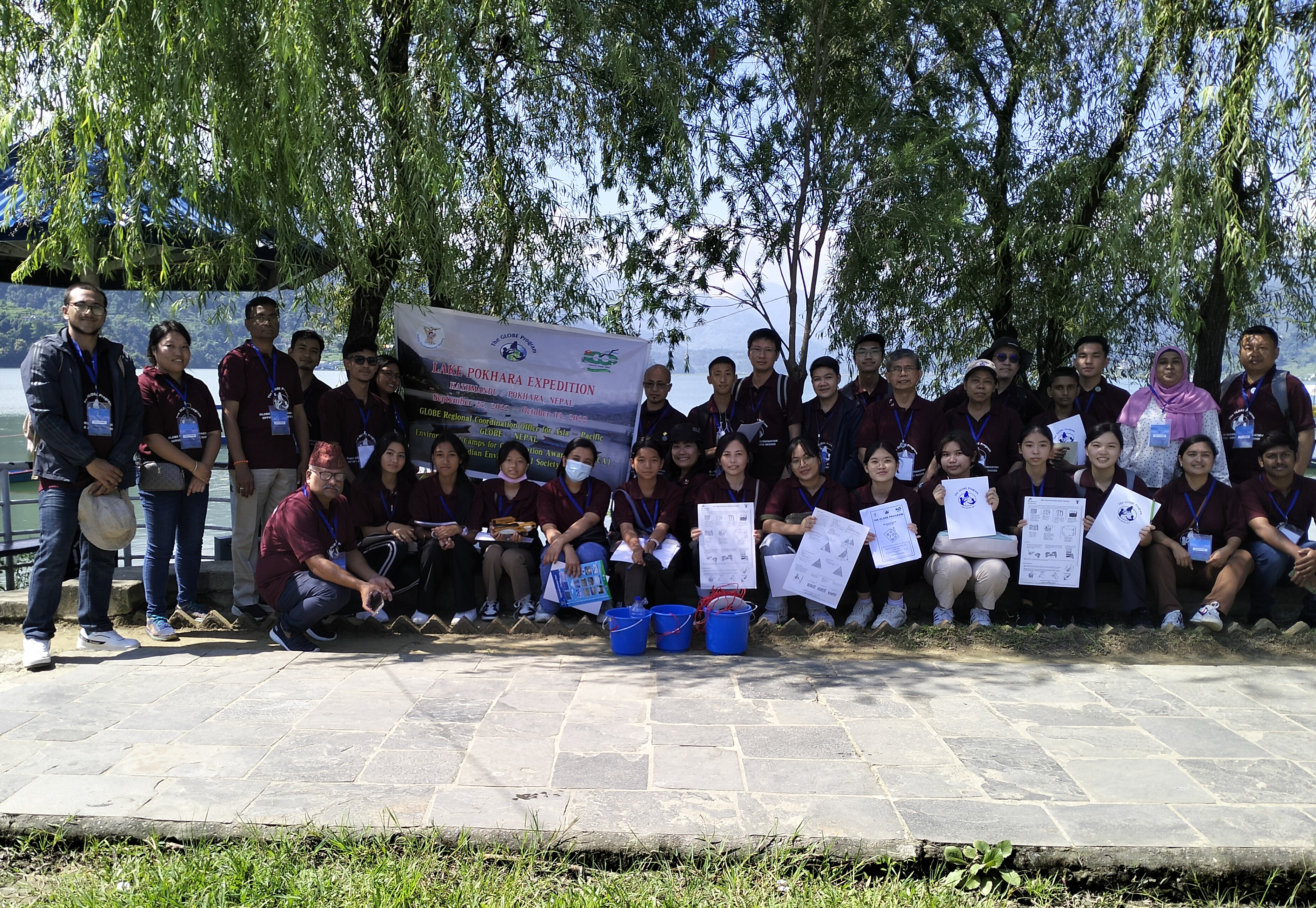
Group photo
of the participants at Lake Fewa, Pokhara, Nepal
Star Story submitted by Dr, Desh Bandhu, Coordinator, Asia and Pacific Regional Coordination Office.





